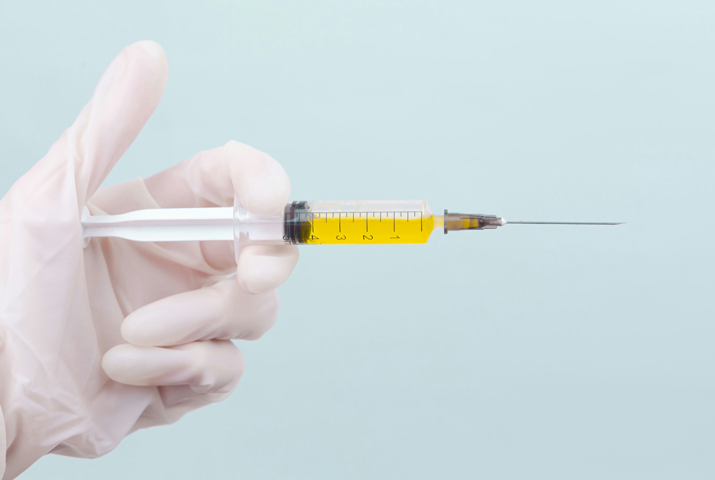- Home
- Blog
- Material & Life
- TPEs: Ideal Materials for Syringe Gasket Applications
TPEs: Ideal Materials for Syringe Gasket Applications
2024-05-27

Photo by Diana Polekhina on Unsplash
Did you get a vaccination this year? After many years, the peak impact of the COVID-19 pandemic has finally subsided. Society is recovering from the pandemic. Live shows and events return or even bounce back from the pandemic.
Since the pandemic, many of us feel bombarded with so many vaccines. As people believe that the threat has largely passed, it seems that there’s no further need to have any more. But Covid is still circulating among the general population. And we are facing the threats of flu and global respiratory illness. Vaccination will play a crucial role in modern healthcare. Let’s talk about the essential device of vaccination, syringe!
Syringes are important devices in delivering precise and controlled doses of medications. Behind the seamless operation of syringes lies a complex effect of materials, each designed to meet strict performance and safety requirements. Syringe is the critical component that ensures the reliable functioning. In recent years, thermoplastic elastomers (TPEs) have emerged as the ideal choice for this application.
Understanding Thermoplastic Elastomers
Thermoplastic elastomers represent a unique class of materials that combine the desirable properties of thermoplastics and elastomers. Unlike traditional elastomers, TPEs can be processed using conventional thermoplastic methods, such as injection molding and extrusion, while retaining the flexibility and resilience typically associated with elastomers.
TPEs offer effective sealing mechanisms. High degree of flexibility and elasticity allow them to recover their original shape after deformation. This property ensures a tight seal between the barrel and plunger of the syringe, preventing leakage and ensuring accurate dosage delivery.
Medical devices, including syringes, must meet strict biocompatibility standards to ensure patient safety. PHOENIX medical grade TPEs are biocompatible. They have passed biological evaluation of medical devices, such asISO 10993-5: Tests for in vitro cytotoxicity and ISO 10993-23: Tests for irritation. Our medical TPEs are suitable for direct contact with bodily fluids.
TPEs exhibit excellent resistance to a wide range of chemicals, including common sterilization agents and various pharmaceutical substances. This makes them suitable for use in medical applications where exposure to different chemicals is inevitable.
The thermoplastic nature of TPEs allows for easy and cost-effective processing. Manufacturers can utilize standard injection molding techniques to produce complex gasket designs with high precision and consistency.
As the demand for advanced medical devices continues to rise, the choice of materials becomes increasingly crucial. Thermoplastic elastomers have proven to be a game-changer in the field of syringe manufacturing, particularly for gaskets. Their unique combination of properties, including flexibility, chemical resistance, biocompatibility, and ease of processing, positions TPEs as the material of choice for ensuring the reliability and safety of syringes in medical applications. Manufacturers and healthcare professionals can benefit from embracing the advantages that thermoplastic elastomers bring to the syringe gasket technology.
See Phon Tech's medical grade TPEs
Did you get a vaccination this year? After many years, the peak impact of the COVID-19 pandemic has finally subsided. Society is recovering from the pandemic. Live shows and events return or even bounce back from the pandemic.
Since the pandemic, many of us feel bombarded with so many vaccines. As people believe that the threat has largely passed, it seems that there’s no further need to have any more. But Covid is still circulating among the general population. And we are facing the threats of flu and global respiratory illness. Vaccination will play a crucial role in modern healthcare. Let’s talk about the essential device of vaccination, syringe!
Syringes are important devices in delivering precise and controlled doses of medications. Behind the seamless operation of syringes lies a complex effect of materials, each designed to meet strict performance and safety requirements. Syringe is the critical component that ensures the reliable functioning. In recent years, thermoplastic elastomers (TPEs) have emerged as the ideal choice for this application.
Understanding Thermoplastic Elastomers
Thermoplastic elastomers represent a unique class of materials that combine the desirable properties of thermoplastics and elastomers. Unlike traditional elastomers, TPEs can be processed using conventional thermoplastic methods, such as injection molding and extrusion, while retaining the flexibility and resilience typically associated with elastomers.
TPEs offer effective sealing mechanisms. High degree of flexibility and elasticity allow them to recover their original shape after deformation. This property ensures a tight seal between the barrel and plunger of the syringe, preventing leakage and ensuring accurate dosage delivery.
Medical devices, including syringes, must meet strict biocompatibility standards to ensure patient safety. PHOENIX medical grade TPEs are biocompatible. They have passed biological evaluation of medical devices, such asISO 10993-5: Tests for in vitro cytotoxicity and ISO 10993-23: Tests for irritation. Our medical TPEs are suitable for direct contact with bodily fluids.
TPEs exhibit excellent resistance to a wide range of chemicals, including common sterilization agents and various pharmaceutical substances. This makes them suitable for use in medical applications where exposure to different chemicals is inevitable.
The thermoplastic nature of TPEs allows for easy and cost-effective processing. Manufacturers can utilize standard injection molding techniques to produce complex gasket designs with high precision and consistency.
As the demand for advanced medical devices continues to rise, the choice of materials becomes increasingly crucial. Thermoplastic elastomers have proven to be a game-changer in the field of syringe manufacturing, particularly for gaskets. Their unique combination of properties, including flexibility, chemical resistance, biocompatibility, and ease of processing, positions TPEs as the material of choice for ensuring the reliability and safety of syringes in medical applications. Manufacturers and healthcare professionals can benefit from embracing the advantages that thermoplastic elastomers bring to the syringe gasket technology.
See Phon Tech's medical grade TPEs
Article Classification
Recent Articles
- TPE to Polyamide (PA) Bonding Guide | PHOENIX TPE
- TPE Menstrual Cups: The Future of Sustainable Period Care
- Elevate your cosmetic packaging with PHOENIX TPEs
- Luggage wheels with PHOENIX™ TPE can take you further
- Let our Static Dissipative TPE & Conductive TPE enrich your product design
- Why TPE is the perfect material for your Fish Bait
- TPEs: Ideal Materials for Syringe Gasket Applications
- How does TPEs help you relax from the daily
- Understanding GHG Emission Quantification and Verification
- PHOENIX™ TPEs care about you, because you are our baby.
- GRS & RCS: Certification For Recycled Materials
- PHOENIX Materialize Your Vision for Sustainable Future
- PHOENIX™ Antimicrobial TPEs help you combat bacteria
- To fast display yourself on the PHOENIX™ TPEs material-made product.
- Learn TPE from daily dental care
- TPE - The Small but Important Piece in Bottle Caps
- Life Matters: High-quality PHOENIX™ TPEs for Medical Applications
- The crucial elements in human life
- The indispensable utensils in the KITCHEN
- The recyclability of PHOENIX™ TPEs
- A Peek Into A Ballerina's Dance Bag
- How to discover the Phoenix™ at 2021 Tour De France!?
- TPE: Enjoy cycling with comfort grips
- Your great company during Covid-19 pandemic!!
- TPE: Why Does It Matter To The Hospital Bed Caster
- Compression Set of Thermoplastic Elastomers

